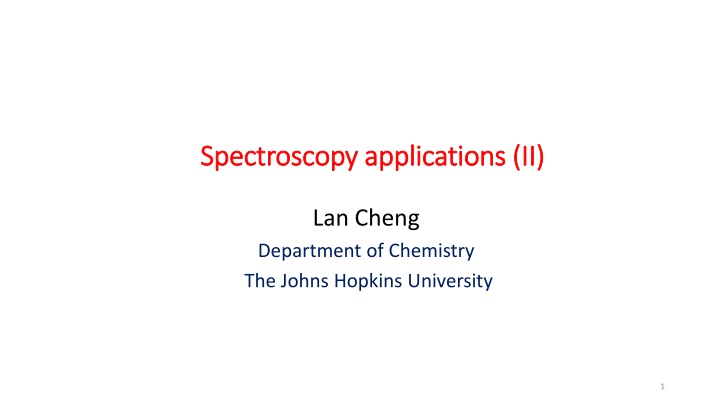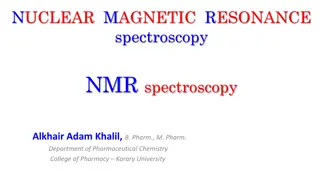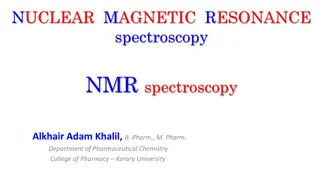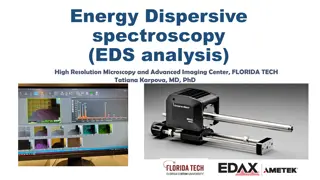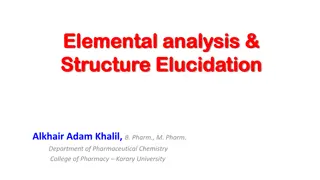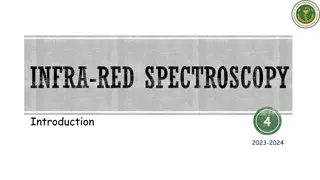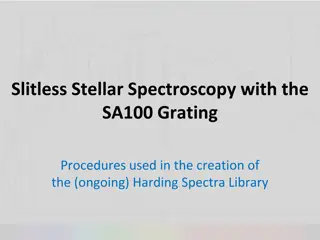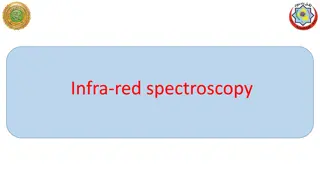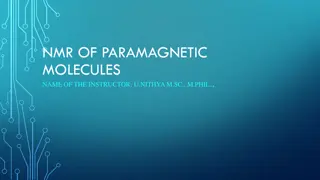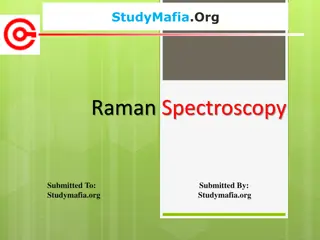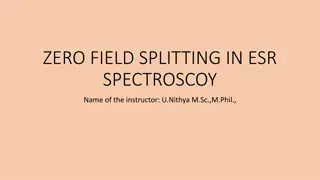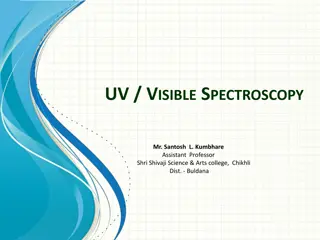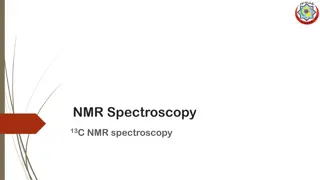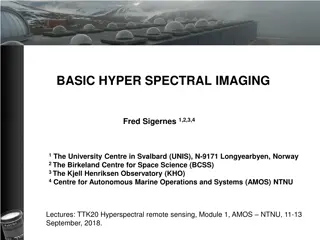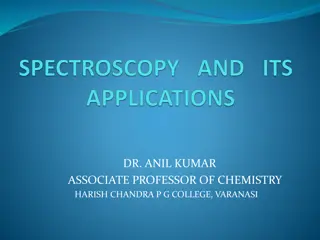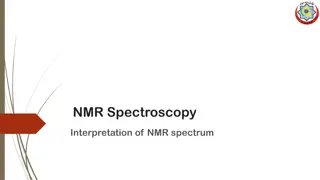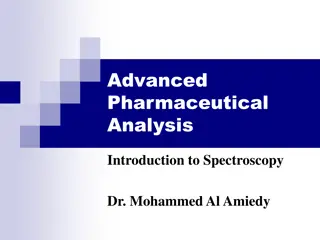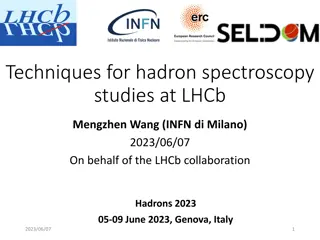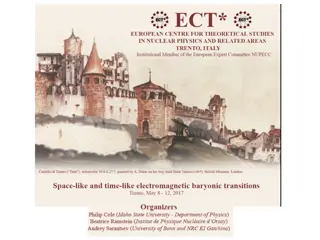Applications of Spectroscopy in Lifetimes and States Excitation
In this collection of images sourced from Johns Hopkins University's Department of Chemistry, various aspects of spectroscopy applications in determining lifetimes for electronic and vibrational excited states are highlighted. Topics covered include transition energies, dipole moments, and decay rates for different types of excited states. Examples of fluorescence and phosphorescence lifetimes, as well as vibrational excited states in water molecules, are also showcased.
Download Presentation

Please find below an Image/Link to download the presentation.
The content on the website is provided AS IS for your information and personal use only. It may not be sold, licensed, or shared on other websites without obtaining consent from the author.If you encounter any issues during the download, it is possible that the publisher has removed the file from their server.
You are allowed to download the files provided on this website for personal or commercial use, subject to the condition that they are used lawfully. All files are the property of their respective owners.
The content on the website is provided AS IS for your information and personal use only. It may not be sold, licensed, or shared on other websites without obtaining consent from the author.
E N D
Presentation Transcript
Spectroscopy applications (II) Spectroscopy applications (II) Lan Cheng Department of Chemistry The Johns Hopkins University 1
Lifetimes for electronic and vibrational excited states Lifetime decay rate ( Einstein A coefficient )
Lifetimes for electronic and vibrational excited states transition energy transition dipole moment speed of light
Lifetimes for electronic and vibrational excited states transition energy in cm-1 Transition dipole in Debye Decay rate in s-1
Example: fluorescence Lifetime for an allowed electronic excited state Typical lifetime
Example: phosphorescence Lifetime Typical lifetime
Example: phosphorescence Lifetime Typical lifetime
Example: phosphorescence Lifetime Typical lifetime
Example: Bending mode in water molecule Literature value 54 ms
Example: Symmetric Stretch mode in water Literature value 293 ms
Example: Asymmetric Stretch mode in water Literature value 12 ms
Example: Bending mode in CaOH A measured value of 720 ms from John Doyle s group at Harvard
Lifetime for CaOH in an optical dipole trap CaOH has been successfully laser-cooled and loaded into a three- dimensional magneto-optical trap (MOT). Vilas, Hallas, Anderegg, Robichaud, Winnicki, Mitra, Doyle, Nature, 606, 70-74 (2022). CaOH has recently been further loaded into an optical dipole trap (~ 20 ?K). One important application is to demonstrate precision spectroscopy using the bending mode of linear triatomic molecules. Therefore, the lifetime for the X2?(010) state of CaOH is being measured. 15
Contributions to the overall lifetime Spontaneous decay channel Blackbody radiation induced excitations Vanhaecke, Dulieu, Mol. Phys.105, 1723 (2007). Raman scattering from the trapping laser Vacuum loss 16
Computed lifetime for the X2?(010) states Unit: ms Spontaneous lifetime Molecules Theory Measured CaOH 876 720(+250,-130) SrOH 902 -- YbOH 1020 -- Measured value from John Doyle s group 17
Computed lifetime for the X2?(010) states Unit: ms Overall lifetime at 300K Molecules Theory Measured CaOH 409 360(+110,-70) SrOH 439 -- YbOH 440 -- Experiments with coherence times 1s are achievable provided that technical sources of loss are addressed. Measured value from John Doyle s group 18
